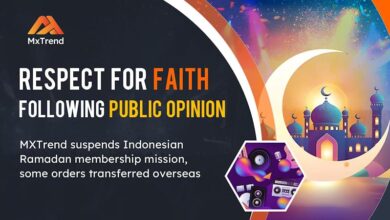Navigating FCRA Restrictions: Legal Strategies for NGOs

Acceptance of foreign hospitality is restricted under Section 6 of the Foreign Contribution (Regulation) Act, 2010. It states that members of a legislature describe all the FCRA restrictions and tips to stay compliant with the same. office-bearers of political parties, judges, government servants, and employees of government-controlled bodies shall not accept any foreign hospitality except with the prior permission of the Central Government while visiting any country outside India. However, in case such hospitality accrues owing to emergent medical needs arising from sudden illness, no prior permission is required. However, in that case, he shall have to intimate the Central Government within one month from the date of receipt of such hospitality with full particulars of the hospitality received, including its source and manner of receipt. This article describes all the FCRA restrictions and tips to stay compliant with the same. First, let us understand what the restrictions are and what the penalties are for the same:
Restriction on Acceptance of Foreign Hospitality Under FCRA Act, 2010
Under the Foreign Contribution (Regulation) Act (FCRA), there are strict guidelines on who can accept foreign hospitality to ensure transparency and prevent conflicts of interest. These restrictions are designed to maintain the integrity of public roles and functions. Here are the categories of individuals and entities prohibited from accepting foreign hospitality:
- Election Candidates: Individuals running for election are restricted from accepting foreign hospitality
- Members of Legislature: MPs and MLAs are prohibited from accepting foreign hospitality
- Political Parties and Office Bearers: Political parties and their office bearers cannot accept foreign hospitality
- Political Organisations: Organisations with a political nature are barred from accepting foreign hospitality
- Media Personnel: Correspondents, columnists, cartoonists, editors, owners, printers, or publishers of registered newspapers are restricted from accepting foreign hospitality
- Judges and Government Employees: Judges, government servants, and employees of government-controlled or owned bodies are prohibited from accepting foreign hospitality
- Media and Broadcast Associations: Associations or companies involved in producing or broadcasting news and current affairs through electronic media are restricted
- Other Prohibited Individuals or Associations: Any other individuals or associations specifically prohibited by the Central Government.
FCRA Account Restrictions
FCRA account restrictions include:
- The account must not be fictitious or benami
- The account holder must not have been convicted or prosecuted for activities aimed at converting individuals from one religion to another
- The account holder must not have been convicted or prosecuted for creating communal disharmony or tension
- The account holder must not have been found guilty of misusing or diverting funds
- The account holder must not be involved in, or likely to be involved in, spreading sedition or using violent methods to achieve goals.
Other Restrictions
- The Central Government can direct individuals receiving foreign funding to cease its use or stop further funding after a summary inquiry.
- Foreign funding used for administrative expenses is capped at 20% of the total funds received.
FCRA Rules 2022
- Increased limits for foreign contributions from relatives.
- Extended deadlines for notifying the Central Government about foreign contributions.
- Extended time frames for opening an FCRA utilisation bank account.
Penalties for Non-compliance
Penalties for non-compliance with FCRA regulations can be severe and impact an NGO’s operations significantly. Understanding these penalties helps organisations avoid costly mistakes and ensure adherence to legal requirements. Below are the key offences and their associated penalties:
| Sl. No | Offences | Penalties |
| 1 | Transferring any FC to another person in contravention of Section 7 of the Act. | ₹100,000 or 10% of such transferred FC, whichever is higher. |
| 2 | FC spent more than 20% of the FC received for administrative expenses. | ₹100,000 or 5% of such FC, whichever is higher. |
| 3 | Accepting FC without registration or prior permission. | ₹100,000 or 30% of such FC received, whichever is higher. |
| 4 | Receiving FC in a bank account other than the specified account. | ₹100,000 or 5% of such FC received, whichever is higher. |
| 5 | Receiving/depositing funds other than FC in the account opened for FC. | ₹100,000 or 2% of the deposit, whichever is higher. |
| 6 | Non-furnishing details (amount/source/manner) of FC received. | ₹100,000 or 5% of such FC received during the period, whichever is higher. |
| 7 | Non-maintaining the account/records of FC received and its utilisation. | ₹100,000 or 5% of such FC received during the period, whichever is higher. |
| 8 | Failure to intimate about FC receipts within the prescribed time limit. | 5% of such FC received in a financial year. |
| 9 | Failure to intimate about opening a bank account within the prescribed time. | ₹10,000 per bank account. |
Tips For FCRA Compliance
Adhering to FCRA regulations is crucial for NGOs receiving foreign contributions. Compliance involves maintaining accurate records, submitting timely reports, and ensuring all activities align with legal requirements. Regular audits and staying updated with regulatory changes are essential for meeting compliance standards and avoiding penalties.
- Maintain Separate Accounts: Keep a designated bank account solely for foreign contributions to ensure proper tracking and reporting.
- File Timely Returns: Submit annual FCRA returns and other required documents on time to avoid penalties and ensure ongoing compliance.
- Conduct Regular Audits: Perform periodic internal and external audits to ensure financial records are accurate and comply with FCRA regulations.
- Stay Updated: Regularly review changes in FCRA rules and guidelines to adapt compliance practices as needed.
- Train Staff: Educate staff members about FCRA requirements and the importance of compliance to ensure adherence across the organisation.
Strategic Planning and Adaptation
Effective strategic planning helps NGOs navigate the complexities of FCRA regulations. Adapting to evolving legal landscapes and integrating compliance measures into organisational strategies ensures smoother operations. Strategic foresight allows NGOs to address challenges proactively and make informed decisions about foreign funding.
- Develop a Compliance Strategy: Create a comprehensive strategy that integrates FCRA compliance into the organisation’s overall strategic plan.
- Monitor Regulatory Changes: Keep abreast of legal updates and regulatory changes to adapt strategies and remain compliant.
- Implement Risk Management: Identify potential compliance risks and develop mitigation strategies to address them proactively.
- Evaluate Funding Sources: Regularly assess the legitimacy and alignment of foreign funding sources with your organisation’s goals and compliance requirements.
- Engage Stakeholders: Involve key stakeholders in the strategic planning process to ensure broad support and effective implementation of compliance measures.
Effective Communication with Donors
Clear and transparent communication with donors is vital for building trust and maintaining strong relationships. NGOs should provide regular updates on how foreign contributions are utilised and ensure that all communications adhere to FCRA guidelines. This openness enhances donor confidence and fosters long-term support.
- Provide Regular Updates: Share periodic reports and updates on how foreign contributions are used and the impact they have made.
- Be Transparent: Clearly disclose how funds are allocated and spent to build trust and confidence among donors.
- Address Concerns Promptly: Respond to donor inquiries and concerns about FCRA compliance and fund utilisation promptly and effectively.
- Highlight Achievements: Showcase the positive outcomes and achievements resulting from donor contributions to reinforce the value of their support.
- Maintain Open Channels: Keep communication channels open for feedback and suggestions from donors to improve engagement and transparency.
Legal Representation
Having experienced legal representation is crucial for NGOs to navigate FCRA regulations effectively. Opting for legal Consultation online in India can offer guidance on compliance, handle legal challenges, and represent the organisation in case of disputes or audits. Their expertise helps ensure that all activities align with legal requirements and protects the NGO’s interests.
Conclusion
Thorough compliance with FCRA regulations, strategic planning, effective donor communication, and reliable legal representation are fundamental for NGOs managing foreign contributions. By prioritising these aspects, organisations can maintain transparency, build trust with donors, and ensure smooth operations within the legal framework. Connect with an expert today and get advice on FCRA Registration



